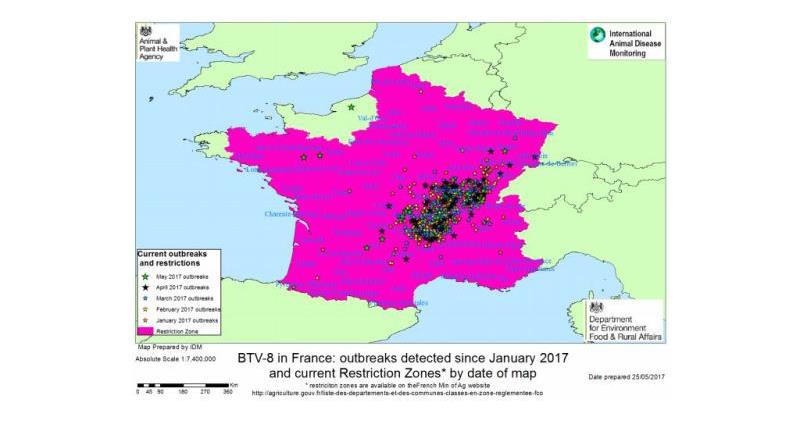The Animal and Plant Health Agency (APHA) identified the disease in cattle after they were brought to Preston and Kendal in England and two locations in Scotland. A total of 32 animals came from the same assembly centre in France, in an area where multiple cases of bluetongue have been confirmed since September this year.
Strict rules on the movement of livestock from regions affected by bluetongue are already in place. Farmers are reminded that animals from these regions must be accompanied by the relevant paperwork to clearly show they meet certain conditions designed to reduce disease risk, such as correct vaccination.
The affected animals will be dealt with under the Trade in Animals and Related Products regulations. Cattle with a high risk of being infected with the BTV-8 strain of bluetongue or which had not been vaccinated before being exported will be humanely culled. Farmers will have the option to send those animals without fully compliant paperwork back to France or to cull them to reduce the risk of disease spreading to susceptible UK livestock.
Bluetongue virus is transmitted by midges and affects cows, goats, sheep and other camelids such as llamas. It can reduce milk yield, cause sickness, reduce reproductive performance or, in the most severe cases, cause death of infected animals.
The UK government has worked closely with a number of groups to raise awareness of the threat of bluetongue through the Joint campaign Against Bluetongue (JAB). The most recent case of the disease in the UK came in 2007. The UK has been officially free from the disease since July 2011
